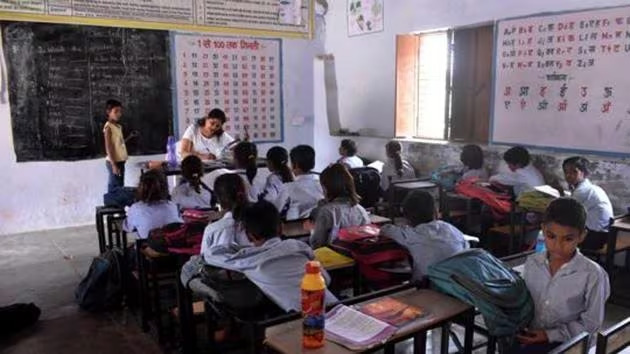Mohd Younus Bhat
The recent times have witnessed growing concerns surrounding the working conditions and treatment of faculty in private schools. This article endeavors to illuminate specific challenges faced by teachers, underscoring the urgency for regulatory measures to establish a fair and conducive work environment. By highlighting these issues, it seeks to initiate a constructive dialogue on the importance of implementing policies that safeguard the well-being and professional rights of educators, ultimately fostering an atmosphere conducive to effective teaching and learning.
Unjustified Layoffs
The issue of unjustified layoffs in private schools is a critical concern that disrupts the stability of the teaching staff. Experienced educators, often with years of valuable knowledge, find themselves abruptly dismissed without clear and transparent reasons. This not only leads to a sense of job insecurity among the teaching community but also hampers the overall quality of education. The constant turnover of experienced teachers can disrupt the continuity and effectiveness of educational programs, impacting both students and the institution. Addressing this issue is vital for creating a more secure and conducive environment for teachers to contribute effectively to the education system.
Personal Issues Impacting Employment
Terminating faculty based on often personal issues or disagreements with management introduces a concerning dimension to professional conduct within private schools. This practice raises questions about the professionalism of the decision-making process. A more structured approach to conflict resolution is imperative to foster a healthy work environment. Implementing effective mechanisms for addressing interpersonal conflicts will not only contribute to a more harmonious workplace but also enhance the overall professionalism and reputation of the educational institution. Ensuring that employment decisions are guided by merit and fair assessment rather than personal disputes is crucial for maintaining a positive and collaborative atmosphere among the teaching staff.
Lack of Official Documentation
The absence of formal letters of employment or recruitment for teachers in private schools creates a significant void, raising apprehensions about job security and legal accountability. Without official documentation, teachers may find themselves in precarious situations, lacking the necessary proof of their employment status. To address this, it is imperative to establish a standardized system for documentation. Such a system not only ensures clarity and transparency in the employment process but also serves as a crucial mechanism to protect the rights of educators by providing them with tangible evidence of their professional standing within the institution. This step is essential for fostering a sense of security and professionalism among the teaching community.
Exploitative Work Conditions
The prevalent issue of assigning teachers double the workload for insufficient wages, coupled with the non-provision of winter vacation salary, underscores the pressing need for fair remuneration practices in private schools. This exploitative practice not only compromises the financial well-being of educators but also contributes to an imbalance in the employer-employee relationship. Additionally, this issue disproportionately affects female staff, exacerbating existing gender-based wage disparities prevalent in many workplaces. Addressing these remuneration challenges is crucial for creating an equitable and inclusive work environment that values the contributions of all educators, regardless of gender, and ensures their financial stability.
Invasive Communication
The imposition of unnecessary meetings through WhatsApp groups during holidays represents a significant infringement on teachers’ personal time. Such practices disrupt the much-needed rest and personal activities that educators deserve during their time off. To address this, there is a crucial need to encourage the use of online platforms for meetings. Utilizing these platforms provides flexibility, allowing teachers to participate in professional discussions without compromising their well-deserved holiday break. This approach promotes a healthier work-life balance, recognizing the importance of respecting teachers’ personal time and contributing to their overall job satisfaction and well-being.
Government Interventions
To address these challenges, the government should consider implementing the following measures:
Recruitment Rules and Minimum Salary
Enforcing recruitment rules in alignment with government directives is paramount to establishing a standardized and equitable system within private schools. By ensuring minimum salary standards for teachers, this measure not only addresses financial stability concerns for educators but also plays a pivotal role in attracting highly qualified professionals to private institutions. A competitive salary framework not only recognizes the value of teachers’ expertise but also fosters a conducive environment for quality education. Ultimately, this enforcement serves as a strategic investment in the education sector, promoting the recruitment and retention of skilled educators who significantly contribute to the overall educational experience.
Protection Against Unjust Termination
Introducing policies that safeguard teachers from arbitrary terminations or discontinuations is a critical step towards ensuring their job security and professional stability within private schools. By implementing a minimum protection period of two years, these policies provide a buffer against abrupt and unjust actions, fostering a more secure environment for educators. This protection not only recognizes the dedication and investment teachers make in their roles but also contribute to a stable and motivated teaching workforce. Such policies promote a sense of security and enable educators to focus on their primary goal of delivering quality education without the constant apprehension of unforeseen employment disruptions.
Compliance with Government Norms
Mandating private schools to adhere to government norms regarding increments, paid leave, and other incentives is imperative for ensuring that educators receive fair and competitive compensation packages. This measure aligns private institutions with established standards, promoting equity and consistency in the treatment of teachers. By enforcing these norms, educators are guaranteed not only financial stability but also recognition for their commitment to education. It contributes to a level playing field, preventing disparities in compensation and fostering a more harmonious and motivated teaching community. Ultimately, this mandate plays a pivotal role in elevating the overall quality of education by prioritizing the well-being and professional satisfaction of the teaching workforce.
(The author is Senior Research Scholar)
Trending Now
E-Paper


